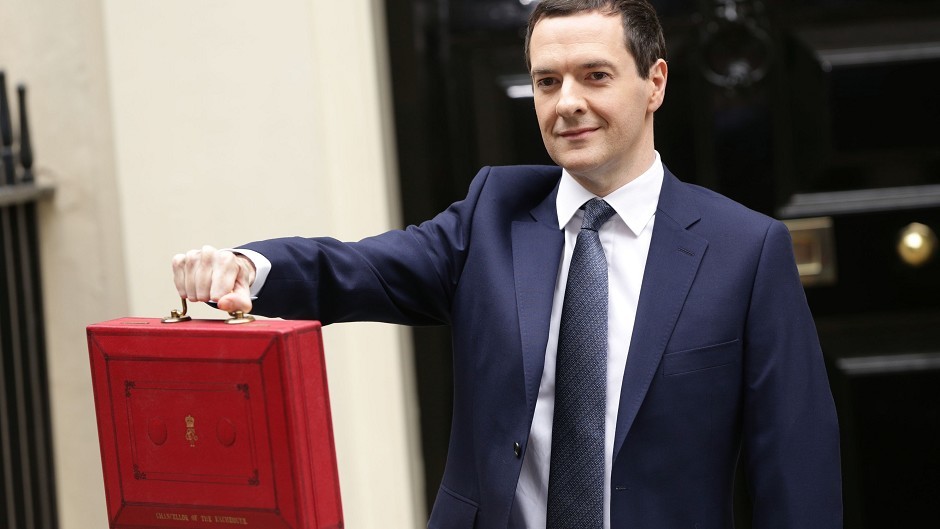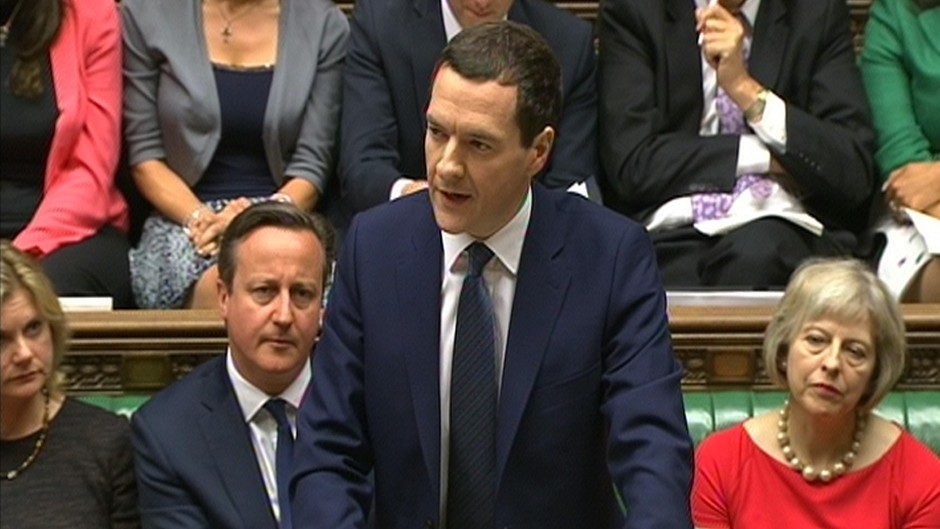George Osborne claimed the “age of irresponsibility” was over as he used his summer Budget to warn that a further £37billion of cuts would be needed in this parliament.
The chancellor announced a new national living wage, hit banks with a new levy and continued his freeze on fuel duty as he delivered the first Conservative majority-Budget since 1996.
To coincide with the statement, the government published a new “fiscal charter” that will commit it to keeping debt falling as a share of GDP each and every year and to achieve a surplus in 2019-20 Budget – although that target is now a year later than previously announced.
Mr Osborne said the Budget measures announced today would save £17billion, with another £20billion to be announced at the Autumn Statement after a spending review.
More reading on…
Health – NHS gets more cash (£8billion to be precise)
Economy – Things don’t exactly look rosy for the UK
Public sector – Workers aren’t going to be too pleased
Protests – People threw footballs at Downing Street
Education – Loans not grants for English students
Surprise pay-rise – Living wage to be £9 by 2020
Business – ‘Britain is open for business’
Oil and gas – Not a lot to write home about… Yet
Larger companies will be hit with an “apprenticeship levy” with aim of creating 3million new apprentices, and that corporation tax would be reduced by 2% to 18% by 2020.
A new 8% surcharge on bank’s profits will be introduced, a crackdown on so-called “non-doms” will bring in an extra £1.5billion in tax over the parliament, while an extra £8billion will be invested in the NHS.
A new national living wage will be introduced at £7.20 in May, with the aim of increasing it to £9 by 2020, benefiting about 2.5million people.
Meanwhile, the personal tax-free allowance will rise to £11,000 next year, with the starting rate for the 40p tax band will rise to £43,000.
“This is a down-payment for a country on the way up”, Mr Osborne said.
However, Mr Osborne also confirmed further £12billion would be squeezed from welfare, including lowering the benefits cap to £20,000, ensuring families do not get extra benefits if they have more than two children, and a four-year freeze in working-age benefits such as tax credits and local housing allowance,
Meanwhile, the income threshold for tax credits will be slashed from £6,420 to £3,850.
The chancellor confirmed that tax breaks for North Sea firms would be expanded, that Britain would spend 2% of GDP on defence in each year this decade.

